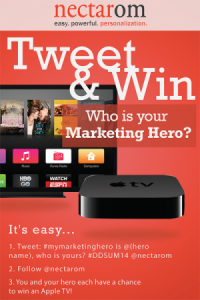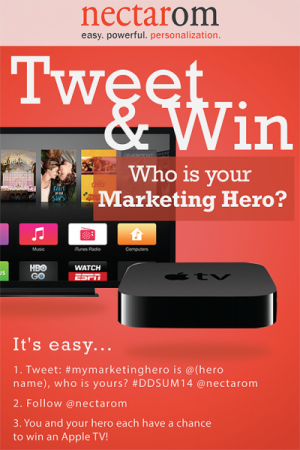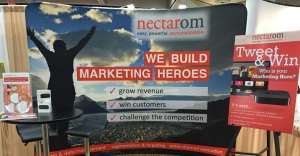Each of us have a marketing hero. It doesn’t matter if you are new to the marketing space or have worked in the industry most of your life. Each of us know someone who inspires us to be a better marketer today than we were yesterday.
You might think that business executives, marketing consultants, technology gurus, data scientists, and digital specialists would have varying ideas on what makes a marketing hero. Our idea of heroism isn’t as different as you might think. I’ve been talking to people in Dallas, San Diego, Chicago, and other cities to learn what traits people look for in a marketing hero.
Have a marketing hero characteristic to add to the list? Let us know on Twitter using #MyMarketingHero!
1. Socially Responsible. Some of our favorite marketing heroes embrace a philanthropic cause. It’s clear their end goal is to build awareness and spread resources to those in need. Marketing hero Pete Frates, creator of the viral ALS Ice Bucket Challenge campaign, reminded us of the power of a smart digital strategy powered by community engagement. Retailers, non-profits, and business-to-business brands alike can learn from these passion-filled philanthropists using marketing to help the world.
2. Data-Driven. Our favorite marketing heroes focus on reaching goals in the most efficient way possible. They don’t rely on assumption or hunches, but seek data that informs them on the best route to generating results.
3. Tech-Savvy. A hero sees technology as a tool to provide a more seamless and meaningful experience for both the business and the consumer. They don’t hesitate to learn a new platform and develop creative ways for pushing its capabilities to the max. What if the technology doesn’t exist? No problem. Marketing heroes are oftentimes entrepreneurs of marketing tech.
4. Mentor-Centric. Whether it’s in an auditorium of five hundred people or the corner table of a coffee shop, marketing heroes are eager to share bits of wisdom. They teach us tips and tricks, and inspire us to push the boundaries of what we think is possible. They are positive and give constructive feedback. While they may not always spell out the answer, they provide direction so we may discover the answers for ourselves.
5. Resourceful. Marketing heroes have this amazing ability to make the most out of the tools and talent around them. They have trained their mind to recognize opportunities when others might only see obstacles. A hero also doesn’t expect to go the journey alone, and welcomes those who are willing to work hard to achieve goals.
6. Curious. This is perhaps the most important characteristic of a marketing hero. Curiosity feeds knowledge. It’s a trait that pushes us to look for solutions even before the problem arises. Marketing heroes look beyond the obvious. They see failure as a growth opportunity, and always welcome a challenge that gets them a step ahead from where they were.
Who is your marketing hero?
Who is your marketing hero? Is it a committed mentor or conference speaker? Is it your colleague or friend? A celebrity or client?
Nominate your hero on Twitter using the hashtag #MyMarketingHero.






